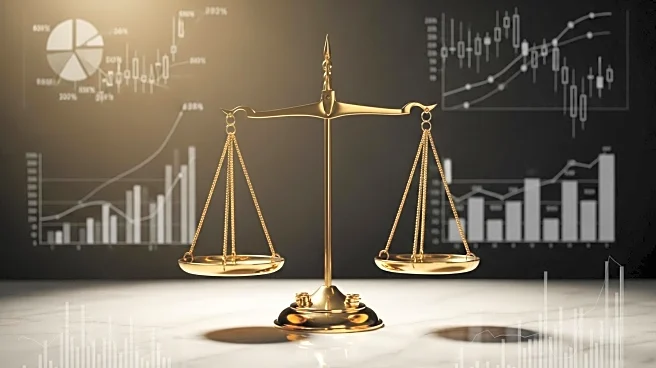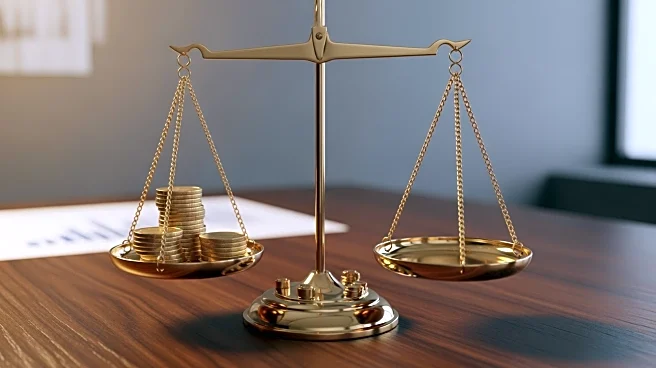What's Happening?
The Federal Reserve is expected to announce a cut in interest rates during its upcoming meeting, as reported by NPR. This decision comes amid ongoing discussions about the state of the U.S. economy and its future trajectory. Economist Justin Wolfers from the University of Michigan provided insights into the potential implications of this move. The anticipated rate cut is part of the Federal Reserve's strategy to stimulate economic growth by making borrowing cheaper for consumers and businesses. This action is seen as a response to various economic indicators that suggest a slowdown in growth, prompting the need for monetary policy adjustments.
Why It's Important?
The decision to cut interest rates is significant as it directly impacts the cost of borrowing for individuals and businesses, potentially leading to increased spending and investment. This move could help counteract economic slowdowns by encouraging consumer spending and business expansion. However, it also raises concerns about inflation and the long-term health of the economy. Stakeholders such as investors, homeowners, and businesses stand to gain from lower borrowing costs, while savers might see reduced returns on their deposits. The Federal Reserve's actions are closely watched as they influence financial markets and economic stability.
What's Next?
Following the anticipated rate cut, financial markets and economic analysts will closely monitor the Federal Reserve's future policy directions. The central bank may continue to adjust rates based on economic data and global economic conditions. Businesses and consumers are likely to respond to the new interest rate environment, potentially leading to shifts in spending and investment patterns. Policymakers will also assess the impact of the rate cut on inflation and employment levels, adjusting their strategies as necessary to maintain economic stability.









